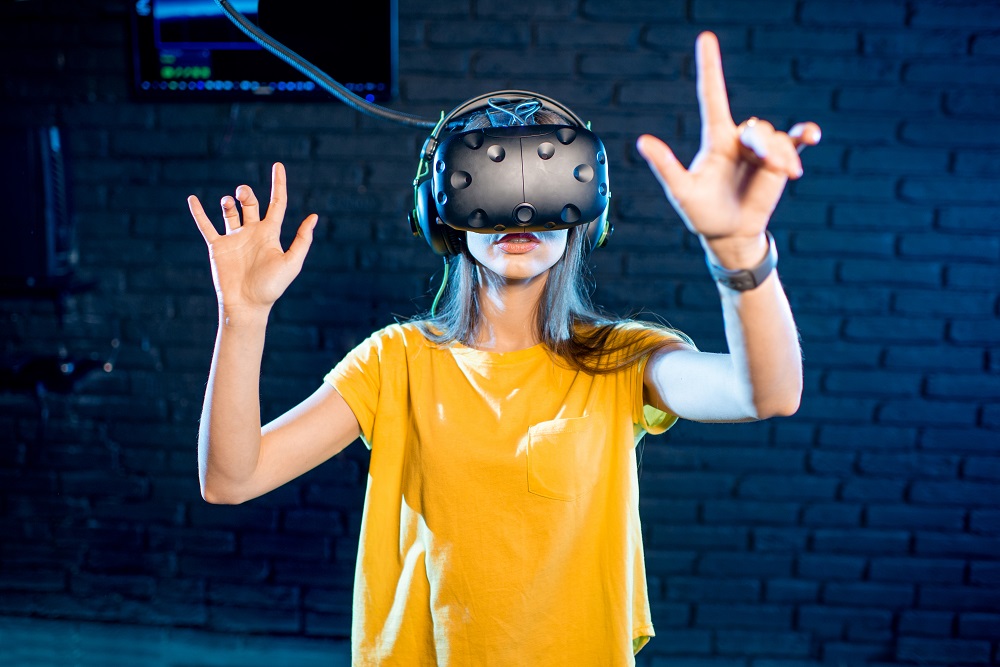
As technology continues to advance, virtual reality is becoming an increasingly popular tool for immersive experiences. From gaming to training simulations and even medical applications, the possibilities are endless. But what does the mean for our future? Will virtual reality replace real life as we know it? Join us as we dive into this fascinating topic and explore the exciting potential of technology in shaping our world.
Virtual reality has been a hot topic in the tech world for the past few years. While the technology is still in its infancy, it has shown tremendous potential for a wide range of applications.
As we’ve seen with other technology, VR has the potential to make some aspects of our lives easier and more convenient. For instance, VR can be used for training purposes in a variety of fields such as healthcare, military, and even space exploration. It can also be used for entertainment purposes, providing an immersive experience that can be enjoyed from the comfort of your own home.
There are also potential social benefits to VR technology. For example, it could be used to create virtual spaces where people can interact with each other without having to physically be in the same place. This could have applications for things like education and remote work. Additionally, VR could provide a way for people to connect with loved ones who live far away or who have passed away.
Of course, there are also potential risks associated with VR technology. One of the main concerns is that it could lead to people becoming isolated from real-world social interaction. However, it’s important to remember that any new technology comes with risks and it’s up to us to find ways to mitigate those risks.
There are a number of potential drawbacks to virtual reality technology. Just as people can become addicted to video games, it is possible that people could become addicted to virtual reality experiences. This could lead to people spending excessive amounts of time in virtual worlds and neglecting their real-life obligations.
Another concern is the potential for VR to be used for nefarious purposes. For example, criminals could use VR technology to commit crimes or perpetrate acts of violence. Additionally, there is the potential for people to become isolated from the real world due to their immersion in virtual reality.
There are also concerns about the long-term health effects of using VR technology. For example, extended use could cause eye strain and other vision problems. It is also possible that VR could create a disconnect between people and the physical world around them.
A lot of people are wondering if virtual reality will eventually replace real life. After all, why would anyone want to live in a world that isn’t real? Wouldn’t it be better to just escape into a virtual one where you can be whoever you want to be and do whatever you want to do?
Unfortunately, living in a virtual world would probably not be as great as it sounds. For one thing, you would never really know if the people you were interacting with were actually real or just computer-generated avatars. And even if they were real people, you would only ever know them through the lens of a computer screen, which is not the same as actually being in the same room with them.
Plus, there’s no guarantee that virtual reality will always be so realistic. As technology improves, it’s likely that the line between what’s real and what’s not will start to blur. Sooner or later, we might reach a point where we can’t tell the difference anymore. And then what?
So no, virtual reality is not likely to replace real life anytime soon. But it could change our lives in some pretty significant ways.
Virtual reality has been hailed as the next big thing in technology, but its adoption has been slower than some predicted. There are a number of reasons for this, including the high cost of VR hardware and the lack of compelling content. But as VR technology improves and becomes more affordable, we expect to see wider adoption of VR in a variety of settings, from gaming to education to healthcare.
In conclusion, virtual reality technology is becoming increasingly popular and has the potential to change the way we interact with each other and our environment. Although it’s impossible to predict exactly what will happen in the future, we can assume that virtual reality technology is here to stay and could eventually replace real life as we know it. However, this transition would have profound implications for our society and require a carefully crafted balance between human interaction and technological advancement.